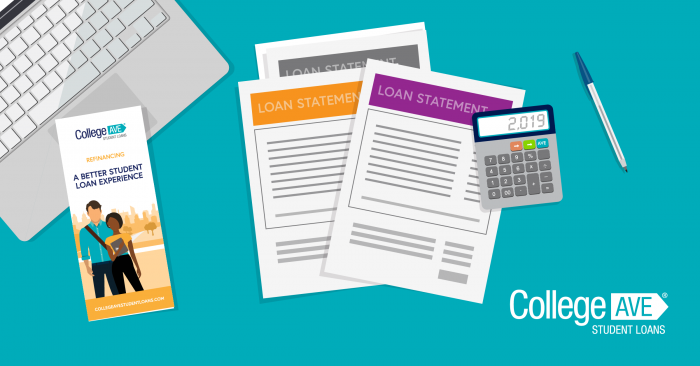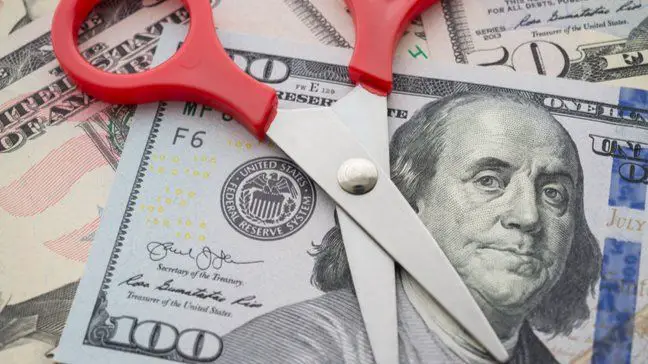You Can Pay Off Your Student Debt Faster
With more of your payment going toward the principal rather than interest, refinancing can help you pay off your debt ahead of schedule.
For example, pretend you had $30,000 in student loans at 6.6% interest, and a $342 monthly payment. It would take you 120 months to pay off your loans. But if you qualified for a lower interest rate of 5%, but kept making a monthly payment of $342, you would cut down your repayment term by almost a year. Youd save money and get out of debt much faster.
Pros Of Refinancing Federal Student Loans Before The Moratorium Ends
Lets get right down to the biggest reason for refinancing now. Interest rates were at historic lows around the end of December 2021. Theyve gone up since then but only marginally and are still lower than theyve been in years.
If you refinance your student loans now, youll get the lowest interest possible on your loans. Having a good credit score and stable income will help lower the rate even more. This low rate will stay unchanged through the life of the loan regardless of how much interest rates go up through the years.
Another important thing to note is that the current low market rates wont be applied to your current loans. Your current loan rates were set when the funds were disbursed and they remain the same till you clear the debt.
When payments resume on May 1, 2022, youll pay the same interest rate that you were paying on the loan prior to the forbearance. Its almost certain that the rate will be much higher than what youd pay on a new loan.
Getting a lower rate on your loans is good enough reason to refinance. Youll save a substantial sum in accrued interest over the loan term. Even a small rate drop can mean thousands of dollars in savings.
Be On The Lookout For These Loan Terms
When refinancing student loans, you must pay special attention to the âfine print.â You should fully understand the terms of the new loan before you commit to a change.
Be aware of longer repayment terms. When you refinance your existing student loans, you can adjust your repayment terms. For example, instead of the standard 10-year plan for federal loans, you have the option to shorten or lengthen the term of the loan. The trade-off of getting a new lower monthly payment may be getting a new loan with a longer repayment term. Refinancing to a low monthly payment could mean paying more interest over the life of the loan.
Probably the most important term of the new loan to be aware of is the interest rate. Is it higher than the interest rate on your current loan? Knowing your current interest rates and comparing them to the new interest rate is the first step you should take when shopping for a new loan. Otherwise, you could spend energy refinancing only to pay more money over time.
Some other things or faqs to consider when reviewing the terms of your new loan include the following:
-
Are there other fees, such as origination fees?
-
Is there a prepayment penalty if I want to pay my loan off early?
-
Is there a forbearance program if I am laid off from my job?
-
How do I access customer service?
Also Check: State Government Jobs Ohio
Talk To A Student Loan Refinancing Expert
At Purefy, our experts are ready to guide you through your best options to save.
Cassie
Getting approved for a student loan refinance and getting the lowest rates usually depends on credit history and income. If you dont have a strong credit score or steady income, you can always choose to apply with a creditworthy cosigner to have higher odds of approval.
Resolve Student Loan Disputes

If you and your loan servicer disagree about the balance or status of your loan, follow these steps to resolve your disputes:
1. Talk with your loan servicer
You may be able to solve a dispute by simply contacting your loan servicer and discussing the issue. Get tips on working through an issue with your loan servicer to resolve the dispute.
2. Request help from the FSA Ombudsman Group
If you have followed the guide and still cannot resolve your issue, as a last resort, contact the Federal Student Aid Ombudsman Group. The FSA Ombudsman works with student loan borrowers to informally resolve loan disputes and problems. Use FSA’s checklist to gather information youll need to discuss the dispute with them.
Read Also: Las Vegas Government Jobs
Student Loan Refinancing Vs Consolidation
Refinancing is different from consolidation. Refinancing is only done through private lenders, and it could change all of your loan details your interest rate, repayment period and even lender. However, because of this, you can often get a lower rate or a lower monthly payment.
Student loan consolidation, on the other hand, is offered through the federal government. With this program, you can combine multiple federal student loans into one Direct Consolidation Loan and potentially change your repayment timeline. Consolidating loans may provide access to more repayment and loan forgiveness options, but it wont necessarily save you money, since your interest rate will be the weighted average of all the loans youre consolidating. If you choose a longer repayment term after consolidating, you may end up paying more in total interest over the life of the loan.
Sofi: Best For Borrowers With Excellent Credit
SoFi is known as the first lender to offer refinancing for federal and private loans together.
Minimum credit score: Not disclosed
Terms: Five, seven, 10, 15, and 20 years
Fixed and variable
Maximum loan amount: $5,000 up to the full balance of your qualified education loans
Pros:
- Academic, military, and medical deferment
Cons:
Read Also: Co-applicant In Home Loan
Don’t Miss: City Jobs In Las Vegas
Benefits Of Refinancing Student Loans
Refinancing your student loans is a quick and easy process, but there are certain student loan refinance pros and cons to be aware of. Refinancing offers several benefits that can greatly improve your student loan situation and debt management, but its important to understand both the positives and negatives before applying.
See how these refinancing benefits as well as the pros and cons of refinancing student loans match up with your personal student loan pay off goals.
You Wont Qualify For Federal Loan Forgiveness
Some federal student loans are eligible for loan forgiveness programs, such as Public Service Loan Forgiveness. But once you refinance, you no longer qualify for loan forgiveness. And no private lender offers forgiveness options.
If you work for a non-profit organization or government agency and plan to do so for the next ten years, it may be financially wise to pursue loan forgiveness rather than student loan refinancing.
Don’t Miss: Government Contracts For Box Trucks
You Wish To Repay The Loan Faster
The standard repayment term for federal student loans is 10 years, and the U.S. Department of Education offers repayment terms as long as 30 years. But even being stuck with student loans for a decade is a long time. Heres why you should consider making a plan to pay off that debt sooner rather than later.
- Youll have the capacity to pursue other life goals: The average monthly student loan payment of $393 can significantly limit your opportunities to improve your financial health and overall well-being. If you can eliminate your student loans faster, youll be able to use that monthly cash flow to work toward goals that are more important to you.
- You can lower your debt-to-income ratio: Your debt-to-income ratio, DTI for short, is an important factor that lenders consider when approving you for credit. Its especially important to mortgage lenders, so if youre hoping to buy a house in the future, getting rid of your student loans can reduce your DTI and help you get approved for a bigger mortgage loan.
- Youll experience less stress: Student loan borrowers can experience various psychological effects, including lack of sleep, headaches, muscle tension, and more. The sooner you can eliminate your student loan debt, the sooner you can experience peace of mind.
Among the options for how to pay off student loans early, refinancing your debt can be one of the most effective.
When Should You Refinance Government Student Loans
Unfortunately, not everyone can refinance their student loans due to a variety of factors including credit score, credit history, and annual income.
And just because you have the ability to refinance, that doesnt mean youll get better rates and terms than you already have.
So when should you refinance your student loans? Beyond just getting approved, here are some other key indicators that show that you might be ready to refinance your student loans.
Also Check: Harford County Careers
Youll Have One Easy Payment
Chances are that you took out more than just one student loan. You may even have a mix of federal and private student loans. If thats the case, juggling multiple loans, monthly payments, and due dates can be confusing. Refinancing can help streamline things for you.
When you refinance, you consolidate your student loans together. Going forward, youll have just one loan to manage and one easy monthly payment.
Why You Shouldnt Refinance

You take out a new student loan with a private lender when you refinance. The new loan pays off and replaces your existing student loans . Refinancing student loans can be an attractive option to combine and simplify student debt, to adjust loan payments or terms, and to potentially secure a lower student loan rate.
But private lenders dont offer the same protections you get with federal student loans. They won’t change repayment plans or pause payments. Refinancing will also mean losing out on student loan relief offered in response to the coronavirus pandemic.
Don’t Miss: Dispensary Silver City Nm
You Wont Be Able To Enter Your Loans Into Deferment Or Forbearance
With federal loans, you can enter into deferment or forbearance if you experience a financial hardship, such as an illness or job loss. Under these programs, you can postpone making payments without entering into default, giving you time to get back on your feet.
Once you refinance, you lose out on this federal benefit. Some refinancing lenders do offer forbearance options, but their versions tend to be stricter and shorter in duration.
If you work in a volatile field, or have recurring health issues, it may be wise to postpone refinancing so you have the option of placing your loans into deferment or forbearance.
Changing Your Repayment Plan Will Become A Lot Harder
When you have federal student loans, you can change your payment plan if you need to, just by contacting your loan servicer.
For most types of federal loans, you can choose from many different plans, including:
- A standard plan to pay off your loans with fixed payments over 10 years
- A graduated repayment plan that raises payments over time
- Extended repayment plans with lower monthly payments
- Income-driven payment plans
The flexibility to change your plan means you have a lot more control over your monthly payment and can make adjustments as needed to fit your budget.
If you refinance with a private lender, you’ll lose this flexibility. You’ll have to pay back what you owe on whatever schedule you agree with your lender. And you can’t change the payment terms unless you refinance again — which may not always be possible.
Recommended Reading: Federal Government Jobs Las Vegas
How To Refinance Your Student Loans
If you decide to refinance your federal student loans, you should find the best lender, interest rate and loan term to fit your financial situation. Heres how to get started:
Can I Refinance My Student Loans
Upsolve is a nonprofit tool that helps you file bankruptcy for free.Think TurboTax for bankruptcy. Get free education, customer support, and community. Featured in Forbes 4x and funded by institutions like Harvard University so we’ll never ask you for a credit card.Explore our free tool
In a Nutshell
When you refinance your student loans, you take out a new loan and use it to pay off your existing student loans. Refinancing may allow you to benefit from a lower interest rate and/or reduce monthly payments.
Written bythe Upsolve Team. Legally reviewed byAttorney Andrea Wimmer
This article will explain the process of refinancing student loans. When you refinance your student loans, you take out a new loan and use it to pay off your existing student loans. Refinancing may allow you to benefit from a lower interest rate and/or reduce monthly payments.
Refinancing can be a great solution for working graduates who have high-interest, unsubsidized Direct Loans, Graduate PLUS loans, and/or private loans. Federal loans carry some special benefits, for example, access to public service forgiveness and economic hardship programs. Beware that if you refinance, these benefits and others – like deferment and forbearance – may no longer be available to you.
You May Like: Entry Level Government Jobs San Diego
Your Interest Rates Are High
Getting a lower interest rate and saving money on student loans is typically one of the top reasons people choose to refinance.
Private student loan refinance companies can often offer lower interest rates than what youre currently paying on federal loans. In fact, current student loan refinance interest rates are at record lows.
Student loan refinance lenders use your credit score, income, and other financial information to determine which rates you qualify for. And if everything looks great, you could be eligible for a lower interest rate which can mean big savings.
A lower rate saves you money on total interest accrued over the life of your loan. Plus, paying lower interest on each of your bills means that it can also lower your monthly payment.
Laurel Road: Best For Borrowers Pursuing Health Care Degrees
Laurel Road is a part of KeyBank and offers refinancing for undergraduate, graduate, and some associates degrees.
Minimum credit score: Not disclosed
Terms: Five, seven, 10, 15, and 20 years
Fixed and variable
- Special rates for certain medical professionals
- No application, disbursement, or origination fees
Cons:
- $50,000 maximum loan amount for associates degrees in certain health care fields
- Short six-month grace period
Don’t Miss: Dental Grants For Individuals
Private Student Loan Borrowers: Consider Refinancing Right Now
Consider refinancing if you’re a private student loan borrower paying a too-high interest rate. Right now, federal loan rates are the lowest in over a decade, which means that many private lenders have followed suit and also lowered their interest rates, as well.
But low rates won’t last forever: Though private lenders set their own rates, they’re influenced by the Fed’s prime rate. As Covid restrictions ease and the economy improves over time, the Fed will again raise rates and refinancing may not be as cheap.
Now is, therefore, an ideal time for private student loan borrowers to consider refinancing and take advantage of the low rates before they rise again. If your credit score is better than when you last applied for a private student loan, you’re in even better shape to qualify for a low rate.
APRs on refinanced student loans currently range from 2.59% to 7.63% fixed and 1.99% to 6.86% variable. As you shop around for a private lender to refinance through, use their prequalification tools before applying to see what rates you’re eligible for without hurting your credit.
You can also use loan marketplaces like Credible to compare lenders. With rates at historic lows, you may want to choose a lender that offers fixed APRs so you can lock in the low rate and know it won’t ever change over the entire duration of your loan term.
A Final Thought On Whether To Refinance Federal Student Loans Before The Forbearance Ends

This is no easy decision. Theres no one solution thats right for everyone. Most financial experts suggest that it may be best to wait until payments resume to make a final decision. Even then, you should only consider refinancing if youre absolutely sure that you wont need the federal student loan protections anytime in the near future.
In general, you should consider refinancing federal student loans only if:
- Youre earning a steady, high income and are sure you wont need the protections associated with the original loans.
- Your credit score is good and you qualify for a lower interest rate.
- You want to increase your monthly payments and pay off the debt earlier.
Dont consider refinancing federal student loans if:
- You dont have a steady income or your income is low and you may need the federal loan protections to fall back on.
- Your credit is bad and you dont qualify for a lower interest rate.
Its a good idea to consult with a qualified financial advisor before making the huge decision to refinance federal student loans before loan payments resume.
You May Like: Safelink Phones Replacements
